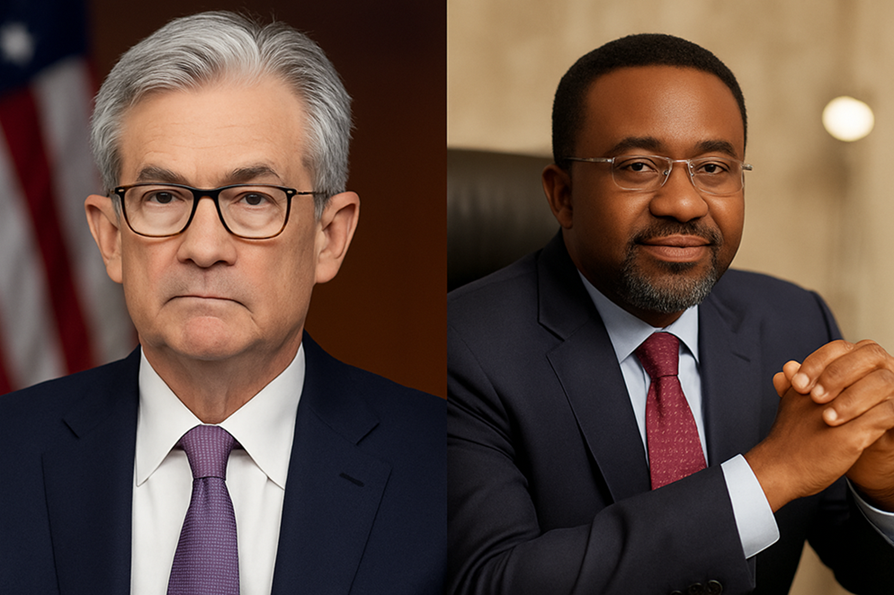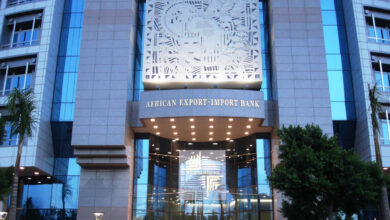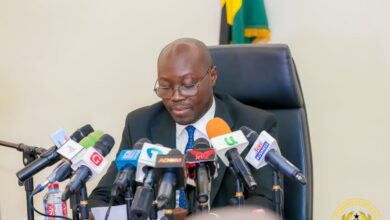From Washington to Accra: How US Political Battles Could Hit Your Pocket

The independence of the United States Federal Reserve, the world’s most influential central bank, is under growing political pressure from President Donald Trump and experts warn this could have serious consequences for Ghana and other economies worldwide.
Bank of England Governor Andrew Bailey has recently told the UK Parliament’s Treasury Select Committee that political interference in the Fed’s decision-making represents “a very serious situation” and “a very dangerous road to go down.” Bailey stressed that the Fed’s credibility rests on its ability to act independently of political pressure, ensuring the world’s largest economy remains stable. If that independence is eroded, he warned, the ripple effects could destabilise global markets.
His concern echoes that of European Central Bank (ECB) President, Christine Lagarde, who has also described the prospect of Fed interference as “a very serious danger” to global economic stability. Lagarde argued that if the Fed is forced to follow presidential directives instead of its mandate, it would set a “very worrying” precedent. She underlined that the Fed is not just America’s central bank but a pillar of international financial stability, guiding global capital flows and influencing borrowing costs worldwide.
The comments come as US President Donald Trump continues his public clashes with Fed Chair Jerome Powell, demanding deeper interest rate cuts and even attempting to remove Governor Lisa Cook, who has since sued the president. Trump insists that slashing rates will boost jobs and growth, but central bankers say it is not the role of politicians to dictate monetary policy.

Why This Matters for Ghana
The Federal Reserve plays a central role in setting the tone for global interest rates and capital flows. When the Fed makes independent, evidence-based decisions, emerging markets like Ghana can plan with some degree of certainty. But if political interference leads to unpredictable rate cuts or hikes, Ghana’s already fragile economic recovery could face new shocks.
Exchange Rate Pressures
Ghana’s cedi is highly sensitive to global dollar movements. If Fed independence is eroded and monetary policy becomes politicized, investor confidence in the dollar could wobble, leading to volatility in exchange rates. For Ghana, that means heightened pressure on the cedi, with ripple effects on inflation, import costs, and debt servicing.
Foreign Investment Uncertainty
Ghana relies heavily on foreign portfolio inflows, particularly in bonds and other financial instruments. Investors typically seek stability, and if the Fed appears politically compromised, global risk perception could increase. This may cause investors to retreat to “safe havens,” reducing capital flows to emerging markets, including Ghana.
Commodity Price Fluctuations
Ghana’s economy leans on exports of gold, cocoa, and oil. US interest rate policies directly influence global commodity prices. If the Fed cuts rates under political pressure, gold prices may spike in the short term — good news for Ghana’s reserves. But longer-term uncertainty could depress commodity markets, affecting export earnings.
Rising Borrowing Costs
Already, Ghana is grappling with debt restructuring and high borrowing needs. A politically weakened Fed risks spooking global bond markets, which could push up yields and make borrowing even more expensive for countries like Ghana that depend on concessional loans and international credit.
A Global Risk, Not Just America’s
The situation reflects a broader challenge: when central banks lose independence, they risk becoming tools of political expediency rather than guardians of economic stability. For Ghana, which is recovering from years of currency volatility, high inflation, and debt distress, such instability in the US would make domestic reforms even harder to sustain.
Looking Ahead
Ghanaian policymakers, particularly at the Bank of Ghana, will need to watch developments in Washington closely. If the Fed bends to political pressure, Ghana may need to strengthen its own monetary discipline, build higher forex reserves, and deepen engagement with regional financial safety nets to cushion against shocks.
As Andrew Bailey put it, “The Federal Reserve is the central bank for the world’s largest economy… its independence is critical.” For Ghana and other emerging markets, the credibility of the Fed is not just an American issue , it is a lifeline for economic predictability in an already uncertain global economy.




